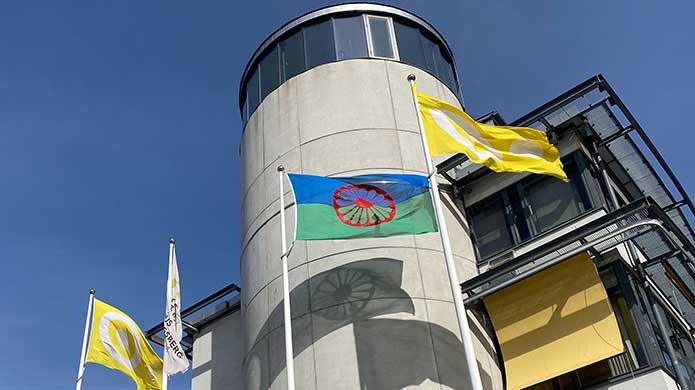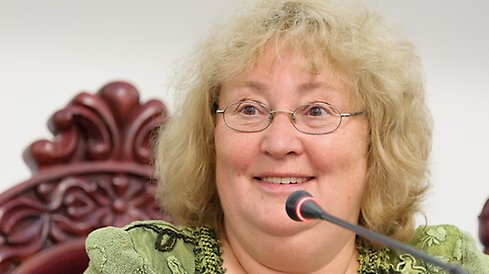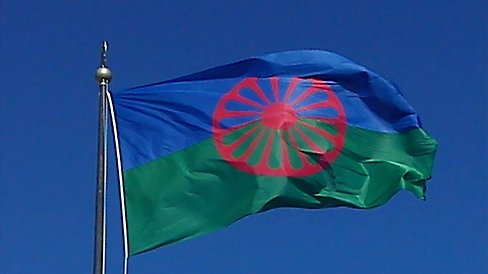Department of Romani Studies founded at Södertörn University – unique in Sweden
Romani Studies has long held a special position at Södertörn University. The university has had national responsibility for the minority language of Romani Chib since 2013, and has the Nordic countries’ first professorship in the subject. Romani Studies will now also be a department at Södertörn University.

“We are very pleased, as this is an important signal from the university. We are the first higher education institution in Sweden with Romani Studies as a separate subject, and among the first in the Nordic region. It is also somewhat uncommon in an international context, although there are researchers in the subject in a variety of places,” says Jan Selling, associate professor of Romani Studies and new head of department.
Romani Studies is a multidisciplinary subject. At the university, research is conducted in Romani linguistics by Professor of Romani Studies Kimmo Granqvist, in ethnology by Dr Florence Fröhlig, in education by Associate Professor Solvor Mjöberg Lauritzen and in history and antiziganism by Associate Professor Jan Selling. Romani Studies covers research questions about the Roma, interactions between Roma and non-Roma peoples, and non-Roma attitudes and approaches to Roma – including cultural, societal, linguistic and legal issues.
Wide range of courses
The university now offers eight freestanding courses in Romani Studies, including courses in Romani Chib, the history of the Roma people and a very popular course on antiziganism. These courses can currently be combined to complete the first year of undergraduate studies in Romani Studies. Work is ongoing on developing the next level of courses, allowing students to continue building on their studies. The hope is for the subject to gain degree-awarding powers in the next few years, and thus be able to offer doctoral education. The development of Romani Studies is vital to counteracting structural discrimination, which forms a barrier that prevents Roma from accessing higher education.
Bridge-building courses and mother-tongue teachers
Three of the people who have been the core of the subject, contributing to its role at the university and its relationship with the Roma people, are Angelina Dimiter-Taikon, Anna Lindqvist and Christina Rodell Olgaç. They have worked together on the Romani bridge-building courses that the university has offered four times and on courses for mother-tongue teachers in Romani Chib.
“Trust and good relationships are vital, and Södertörn University has prioritised our work with the Roma in many areas. This is a university where Roma people can feel welcomed and comfortable. We have often been unable to access the ‘fine spaces’ and the Romani contract education and freestanding courses in Romani Studies have allowed us to get a foot through the door of academia,” says Angelina Dimiter-Taikon, who has a teaching degree from Södertörn University and a Master’s degree in education. She has also taught Romani Studies on contract education courses and on the Teacher Education programmes.
Christina Rodell Olgac, associate professor and senior lecturer in Romani Studies, adds:
“It would have been impossible to achieve what we have unless we had been able to work together. We have also had strong support from university management, they’ve been there for us all the way,” she says.
Critical perspectives on research
Like other research areas that have historically been founded upon Western norms, Romani Studies has been characterised by a ‘them and us’ attitude. In the best case, the Roma people have been seen as something colourful and exotic. But researchers often, like wider society, adopted a patronising perspective, the perception being that the Roma were inferior to white Europeans. The most extreme consequence of this was the Holocaust, in which hundreds of thousands of Roma were murdered.
“There has been gradual development towards more critical perspectives in the subject, partly linked to how, in the 1960s, it became permissible to criticise the white, European, male norm. The most important progress has happened in the past twenty years, with the increasing number of Roma academics. Inspiration has come from the African-American movement, which largely revolves around emancipation in the form of activism, both inside and outside academia. Meanwhile, the foundation that was built by previous academics is also coming into question,” says Jan Selling.
World Roma Congress
Internationally, research in Romani Studies is now conducted at numerous universities, research institutes and museums. At Central European University in Austria/Hungary and Harvard University in the US, research has adopted a more critical approach to Romani Studies, an approach which is also characteristic of the research at Södertörn University. On 5-7 April these three universities will co-host a series of seminars under the title The Social, Cultural, and Political Legacy of the 1971 World Roma Congress. 2020 marks the 50th anniversary of the first World Roma Congress, which is an occasion for discussing critical milestones, changes and setbacks in the battle for Roma rights.
Page updated
08-04-2021



